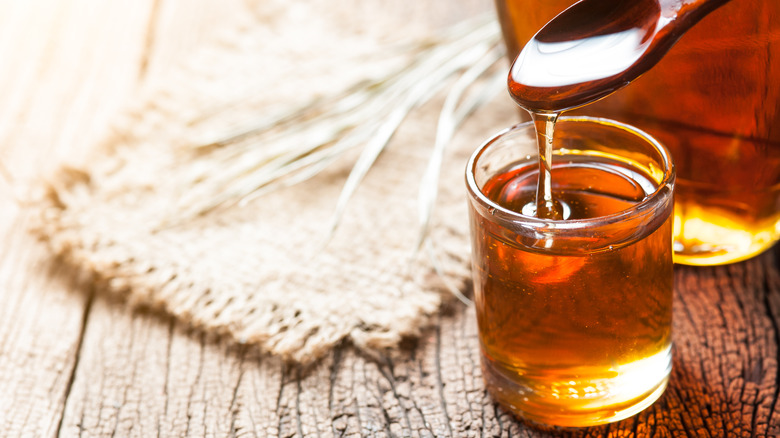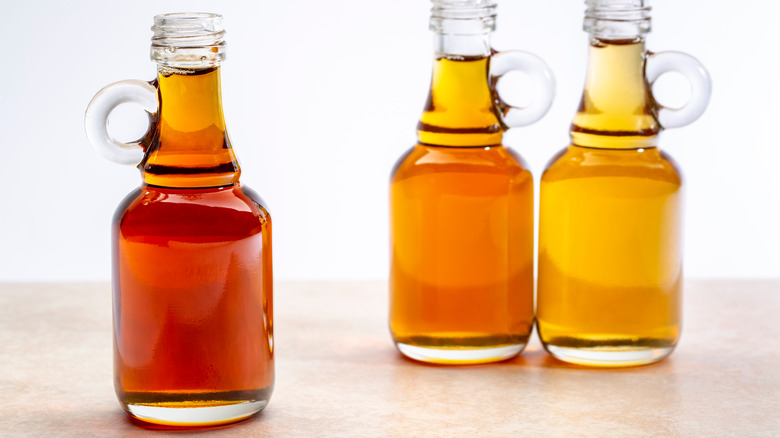The Real Reason Maple Syrup Isn't Keto-Friendly
It's no secret that low-carb diets have risen in popularity since the Atkins diet first hit the scene in the 1970s, with one of the most notable variations being the ketogenic — or keto — diet (via AP). According to Medical News Today, the objective of reaching and maintaining a state of ketosis within the body through such a diet is to divert the cells from using carbohydrates as their main energy source to relying on ketones, or fat stored in the body, for fuel. Studies have shown that a ketogenic diet not only aids in weight loss and diabetes management, but may also reduce the effects of diseases such as epilepsy, Alzheimer's, Parkinson's disease, cancer, heart disease, and more (via Healthline).
To follow a keto diet, however, one must drastically increase their intake of fats and strictly limit their daily allotment of carbs (via Healthline). As Medical News Today explains, the reduction of carbohydrate intake in conjunction with an increased consumption of fat is what causes the body to go into ketosis. To remain in this state, though, one must significantly minimize their sugar consumption. And while there are a number of natural low-carb sweeteners that are keto-approved, such as monk fruit, stevia, and yacon, one that is typically regarded as a healthy alternative to table sugar, maple syrup, is not one of them.
Maple syrup can never be low-carb
Maple syrup has been a staple ingredient in Northeastern American cuisine since indigenous populations first reduced sap from maple trees into sugar in the 1600s (via Taste of Home). According to Consumer Reports, the natural sweetener is nutrient-dense, with ¼ cup of maple syrup delivering 6% of the recommended daily calcium intake and 11% of zinc, as well as a hefty dose of potassium and magnesium. Maple syrup is often seen as a nutritious alternative for highly-processed pancake syrups that are brimming with high fructose corn syrup and artificial caramel color, but it should be considered neither a health food nor a keto-approved sweetener.
Though maple syrup holds a nutritional advantage over refined sugar due to its mineral and antioxidant content, the natural sweetener's elevated level of calories and carbs prevent it from actually being a sweetener suitable for a ketogenic diet (via NDTV). According to Medical News Today, the recommended intake of carbohydrates on a ketogenic diet is between 20-50 grams per day, and as Taste of Home explains, just one tablespoon of maple syrup delivers 52 calories worth of sweetness. That means that one serving of maple syrup not only meets one's daily serving of sugar in one go, but exceeds it. Additionally, real maple syrup can never be low-carb because it is made up solely of natural sugar (via Consumer Reports). Because of this, maple syrup does not adhere to a ketogenic diet.

